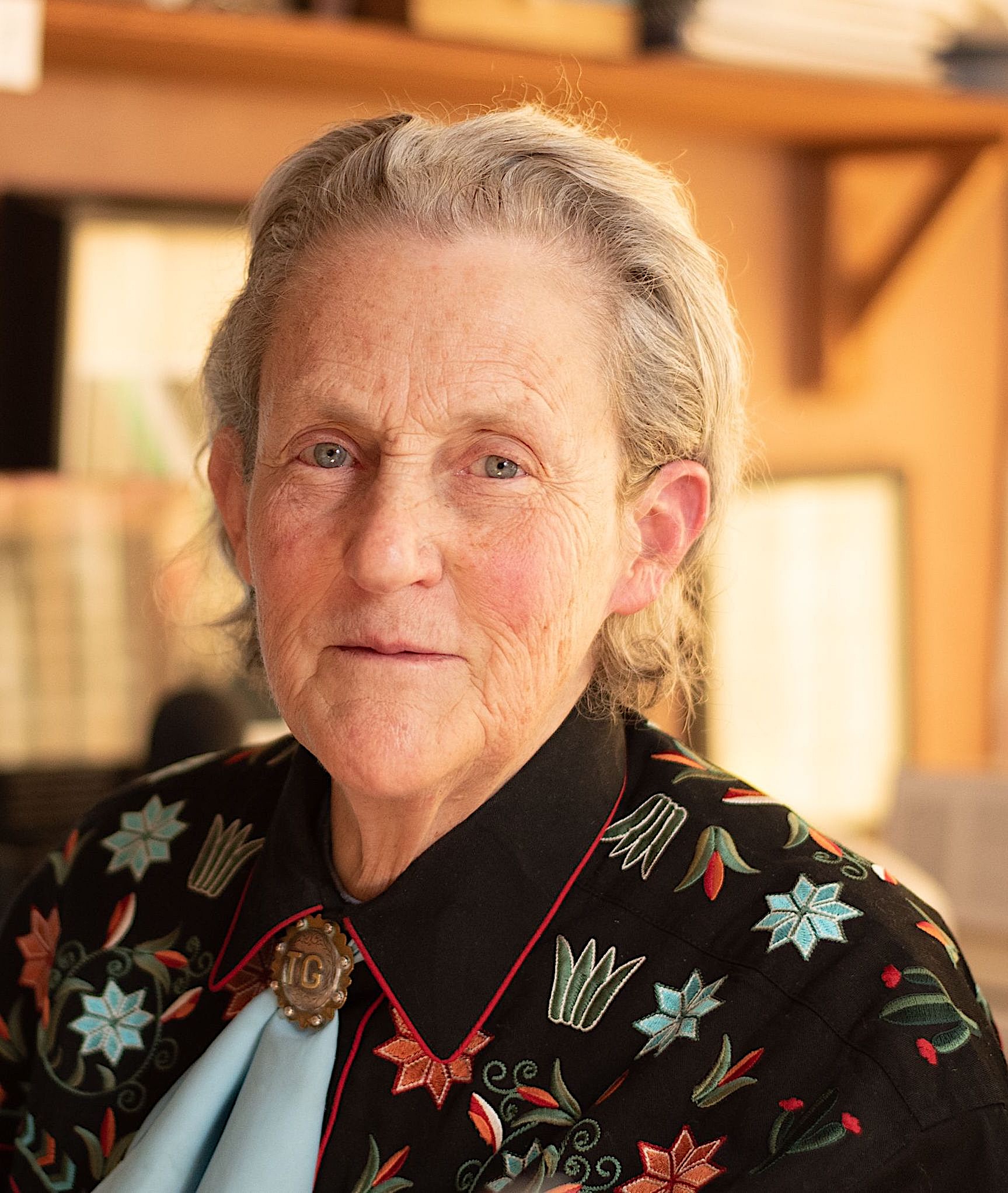
Temple Grandin, Colorado State University’s renowned animal scientist and autism advocate, has received the 2024 Denver Business Journal’s Outstanding Women in Business Lifetime Achievement Award. The Denver Business Journal presents the award each year to a woman “whose professional life has transformed the way business is done in Denver, Colorado and beyond.”
“It’s a real honor to receive the award,” Grandin said. “I’ve worked hard all my life to find practical ways to improve things.”
Grandin began working in the beef cattle industry in the 1970s, a field long dominated by men, and has been a professor of animal sciences in CSU’s College of Agricultural Sciences since 1990. Her work has had substantive and far-reaching impacts on animal welfare and the humane treatment of livestock. More than half the cattle in North America are raised and processed in systems designed by Grandin.
“I’m not big into theory,” Grandin said. “What can I do to actually improve things? Design a better facility. Or a better animal welfare evaluation system; I did that 25 years ago — evaluating animal welfare at meatpacking plants. When I trained management and food safety auditors at McDonald’s, Burger King and Wendy’s it resulted in a lot of changes. It’s simple, easy and effective — and now it’s standard practice.”
Grandin has always looked for practical solutions to problems. “I’ve done a lot of things with simple hypotheses,” Grandin said. Early in her career, Grandin pioneered the design and use of a curved cattle chute, a more efficient model for handling the animals because the curved chutes “take advantage of the natural behavior of cattle.” Prior to Grandin’s design, most cattle moved through straight chutes.
In creating an animal welfare evaluation system, Grandin said she was particularly proud of developing a vocalization score as part of the process. “That turned out to be a very sensitive measure for bad things going on,” Grandin said. “If you go outside a plant and hear, ‘Moo, moo, moo’ — they had problems.”
Grandin has received numerous awards and honors. In 2010, Grandin was named to Time magazine’s list of the 100 people who most affect the world. That same year, Grandin was also the subject of an Emmy Award-winning HBO film starring Claire Danes and delivered a widely viewed TED Talk.
In her talk, Grandin advocates for the value of having all kinds of different thinkers in the world. Grandin, who was diagnosed with autism as a child, describes herself as a “visual thinker,” and credits her ability to “think in pictures” as a big reason why she has been so successful working with animals throughout her career. Thinking visually has allowed Grandin to see problems from an animal’s perspective.
These days, Grandin travels frequently. “I’m doing an awful lot of talks,” she said. Still, she remains passionate about finding ways to connect with and inspire students. “We need to be encouraging students,” Grandin said. “One of the things with students is you have to expose them to stuff. How can they get interested in something if they’re not exposed to it?”
Grandin developed her own interest in the cattle industry as a teenager after visiting her aunt’s cattle ranch. Her love of animals continued to grow from there.
Grandin still teaches a class in livestock handling each year at CSU. “Teaching is really important. I had a great science teacher, and he really motivated me,” Grandin said. “I really like to talk with students about animal behavior and welfare and looking at things in a practical way.”
College of Agricultural Sciences
In the context of a changing climate, CSU’s College of Agricultural Sciences meets global challenges in food safety, food security, wellness and economic prosperity through the sustainable use of natural resources. On campus and at 11 research centers throughout the state, researchers partner with communities and industry to investigate potential improvements to food production and agribusiness. Through sustainability-focused academic programs, students engage in experiential learning as they develop the professional skills, technical expertise and cultural competencies needed to advance agriculture in Colorado and beyond.